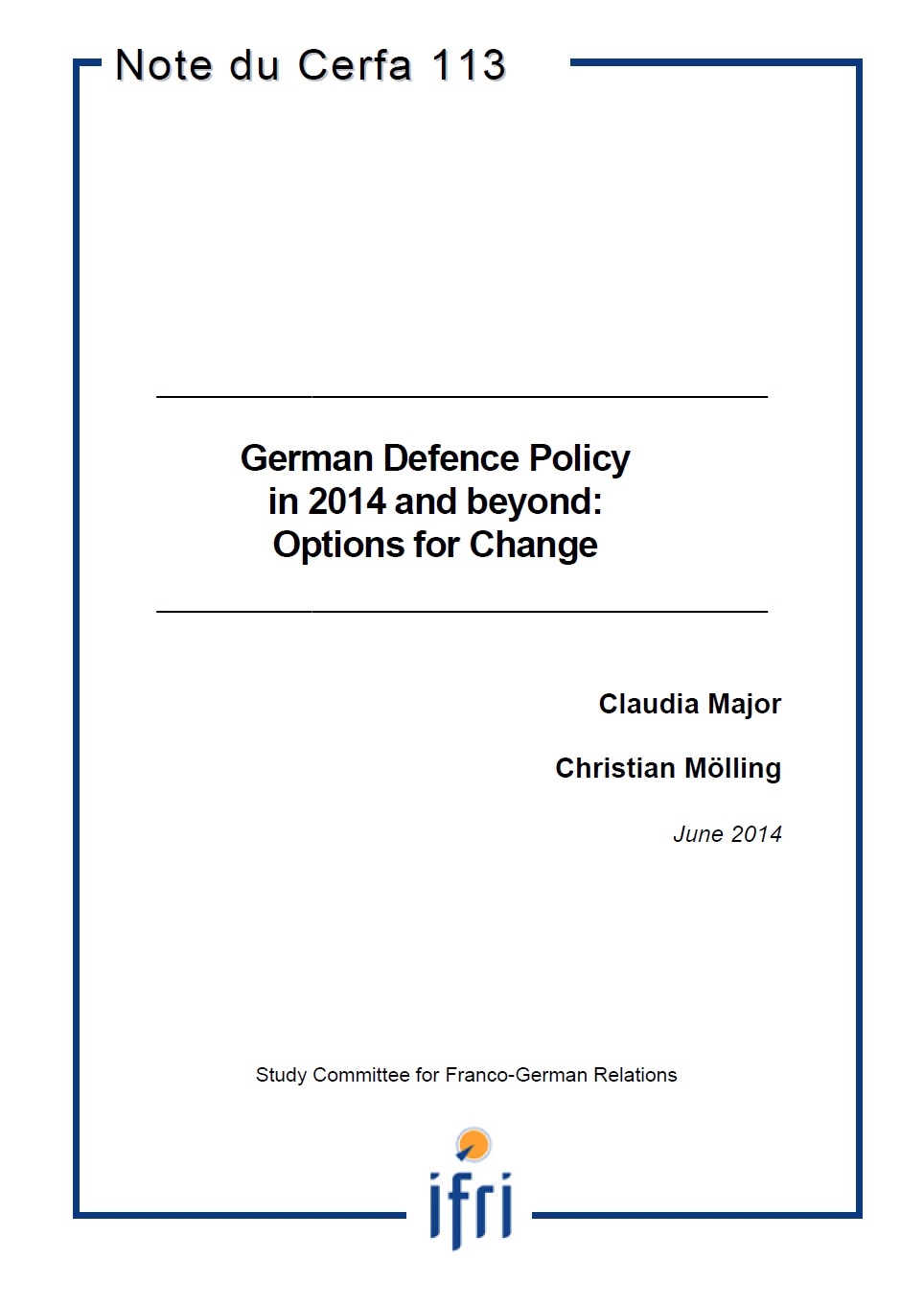German Defence Policy in 2014 and beyond: Options for Change

The speeches made by several German leaders at the Munich Security Conference in early 2014, emphasized that Germany needs to be ready for greater international commitment, and without a priori excluding military instruments.
While several elements seem to indicate growing awareness that change is needed, the nature of German contributions – especially in Africa – shows the long road ahead. A basic contradiction persists between the government’s rhetoric that Germany should participate in international operations and the political limitation on its contributions toward training, advisory functions and logistical support. Apart from political support at the highest level, increased responsibility needs also to be supported by public opinion, which still lacks enthusiasm for what it often perceives as militarism. Similarly, German defence export policy is torn between the government’s willingness to support industry in exporting and the negative feedback about these exports from the public. Change may occur as a result of external developments, linked to NATO or the defence industry, but these impulses need to be taken up by national debate. It remains to be seen whether or not the direction taken will coincide with that outlined in Munich. The crisis in Ukraine must also be taken into account: it could have a catalytic effect, increasing Germany’s visibility and engagement in NATO. Through this crisis, Germany is under pressure to intensify its engagement.
Claudia Major is deputy head of the Research Division “International security policy” at the German Institute for International and Security Affairs (Stiftung Wissenschaft und Politik).
Christian Mölling is Research associate at the German Institute for International and Security Affairs (Stiftung Wissenschaft und Politik).

Available in:
Regions and themes
ISBN / ISSN
Share
Download the full analysis
This page contains only a summary of our work. If you would like to have access to all the information from our research on the subject, you can download the full version in PDF format.
German Defence Policy in 2014 and beyond: Options for Change
Related centers and programs
Discover our other research centers and programsFind out more
Discover all our analysesBundeswehr: From Zeitenwende (historic turning point) to Epochenbruch (epochal shift)
The Zeitenwende (historic turning point) announced by Olaf Scholz on February 27, 2022, is shifting into high gear. Financially supported by the March 2025 reform of Germany’s “debt break” and backed by a broad political and societal consensus to strengthen and modernize the Bundeswehr, Germany's military capabilities are set to rapidly increase over the coming years. Expected to assume a central role in the defense of the European continent in the context of changing transatlantic relations, Berlin’s military-political position on the continent is being radically transformed.
Merz’ European Policy-making: The End of the ‘German Vote’?
Friedrich Merz’s European ambition is to turn Germany, long seen as hesitant into a leading actor within the European Union (EU). To that end, he has pledged to end the “German vote,” a phenomenon that epitomizes the paradox of a country both indispensable and frequently absent from European decision-making.

Securing critical raw material (CRM) value chains – a prerequisite for Europe’s technological resilience
At the heart of economic security, technological resilience is a backbone of the European Union’s (EU) competitiveness. The EU’s energy and digital transitions depend on critical raw materials (CRM).

Reconciling competitiveness and demographic change: a Franco-German imperative
France and Germany are facing parallel demographic shifts that could reshape the future of their economies and their social models. These shifts reflect broader European patterns but are magnified by the central role both nations play in EU governance and competitiveness.








